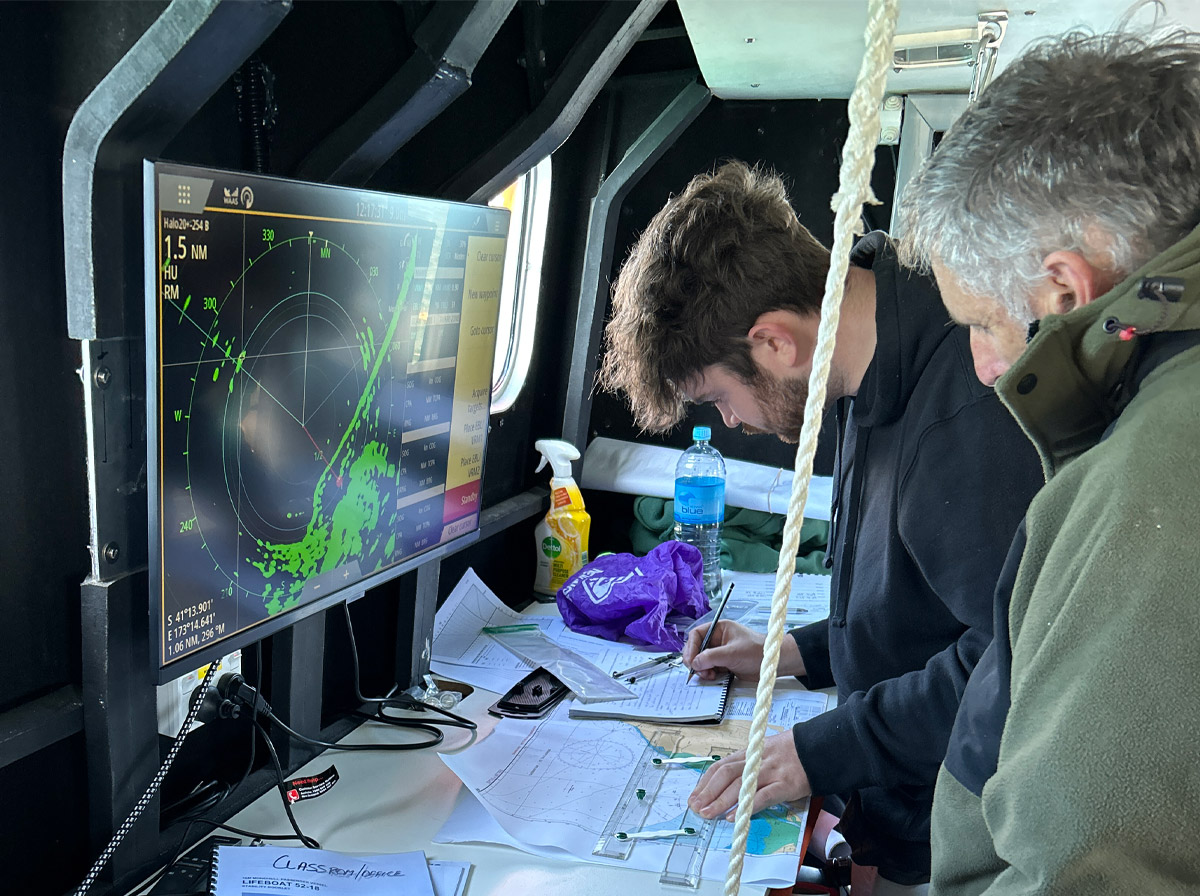
Maritime Micro-Credentials: A Game Changer
What do you do when you need crew trained up quickly to meet opportunities, but the existing training options don’t fit?
Chris Douglas, Marine Operations Manager at Seaworks, was recently faced with this challenge when they needed crew trained up as Deck Watch Ratings (DWR). In many countries, these competencies are usually delivered in a week or less (plus STCW Basic Safety for another 7 days). In New Zealand, there was only one course which is 17 weeks long. This wasn’t going to work for Seaworks, so the options were to send crew overseas or find someone to help.
Developing a new course
Last year, Skipper Training NZ experimented developing a micro-credential radar course for NZ King Salmon and found the process much less intimidating than expected. When Chris approached them to see if there was anything they could do in regard to DWR training, they consulted with other operators, NZQA, Maritime NZ and Hanga-Aro-Rau, the Workforce Development Council.
In less than a month, the course was developed using the International Maritime Organisation competencies and approved by NZQA. Maritime NZ accepted the new course as meeting the same learning outcomes as what is required as per STCW Regulation II/4 and the requirements of Maritime Rule 32.80 Table 11 – 6.
Captain Valentino Lobo, Senior Nautical Tutor at Skipper Training NZ developed the resources and delivered the training with fantastic feedback from the students and their employer less than a month later.
Chris remarks “Skipper Training NZ has done a fantastic job of pulling together the industry, regulators, and other stakeholders. Their use of micro-credentials offers a pathway forward for students and we look forward to working with the team towards building and strengthening the NZ seafaring community.”
The beginning of something great
For many, the Deck Watch Rating is not the end goal but rather a beginning. It is the first step for many on their journey at sea, and the structured progression of micro-credentials can potentially allow mariners to expand their horizons, embrace more responsibilities, and navigate their careers toward leadership roles.
The value of micro-credentials
Beyond the immediate maritime community, the broader educational sector also acknowledges the value of micro-credentials. Eve McMahon, NZQA Deputy Chief Executive, highlights their broad applicability: “Micro-credentials increase the relevance and responsiveness of the qualifications system. They provide formal pathways that recognise short, relevant training that meets the needs of learners and employers. They are effective in upskilling learners while they work, giving both learners and employers confidence in the quality and value of skills and knowledge gained.”
Croydon Smith, Industry Manager at Hanga-Aro-Rau, is amongst the staunch supporters of this innovation. Reflecting on the new micro-credential, he shared,
“It is a real pleasure to learn from and work alongside Skipper Training NZ. They have done a fantastic job in identifying difficulties in the current qualifications framework. It’s encouraging to see the mahi they have done to create the Deck Watch Rating Micro-credential and its immediate, positive impact on the industry. This is a big step in the right direction for the sector.”
As the maritime world continues to evolve, such initiatives underpin the maritime industry’s success – streamlined training to ensure a proficient workforce, priming the industry to excel in the vast seas of global competition.

This Post Has 0 Comments